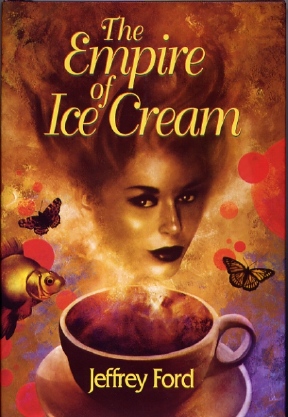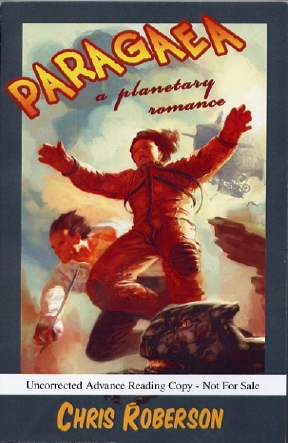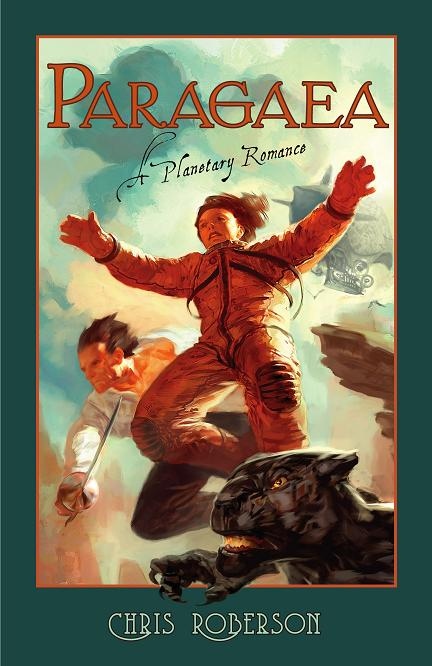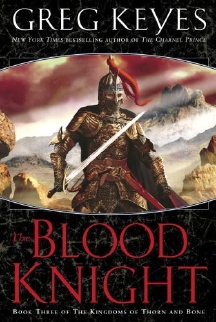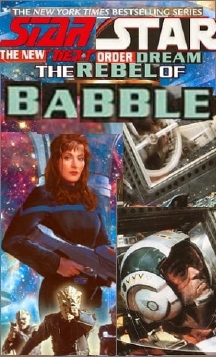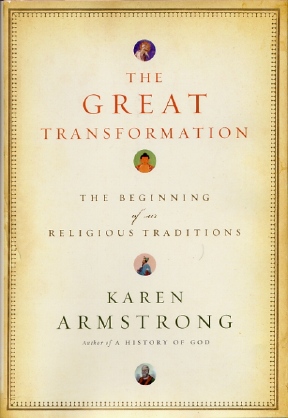|
|
|
This Just In...News from the Agony Column
|
03-31-06: Shari Goldhagen Encounters 'Family and Other Accidents' |
|||
Big
Brother Is Watching
The setup here is pretty simple, and I've already spilled most of the beans. That's appropriate, too. Stuff gets broken, lost, dropped, and generally treated as it does in actual life, the life you might have to live, the life you might in fact find yourself living. So, let's recap. Jack, older, the lawyer who has taken over his late father's practice. Has his shit pretty together. His brother, Connor, is much younger, young enough so that, "When Connor was born, his parents had been old enough to be his grandparents." Alas, "Their father's heart hadn't outlasted his fifties. Instead of exercising or eating vegetables, Jack makes lots of slightly off comments about having heart attacks." OK, sound like anyone you know? It's OK to answer "yes" without telling us who. The fact of the matter is that Goldhagen, who is a celebrity reporter for like National Enquirer, Life & Style Weekly, and Celebrity Living, brings a sense of humor to the truth rays she aims at her Everymen's lives. It makes those lives a hell of a lot more bearable, and in so doing, might make your everyday life seem a bit more bearable as well. Or at least help you spot the entertaining bits and filter out the rest. Granted, one of the so-called "everymen" is a lawyer, and you know, lawyers tend to rarely be hurting for cash. But with that proviso, we're still closer to a home you might recognize than usual. I have to admit that I wasn't inclined to jump up and down about this book. But, I gave it a try and experienced a weird POV-oriented frisson. I have two sons, and so I find myself identifying with the perspective of the dead father, who is not really a part of the narrative. It's interesting what happens when you pick up a book. I think that Ms. Goldhagen wants us to identify with the protagonists, and yes, I get their POV perfectly fine. It's just that, that...I'm not so young as to really identify with the older young guy, and having two sons, it just, well. It's very peculiar, that's all. And to be honest, likely to make me less sympathetic to this novel. That's why I'm writing about it, because, frankly, Mr. Shankly, I rather enjoyed the book. Goldhagen manages a pretty damn great balance between humor and honesty, and together they bolster one another instead of defeating one another. This isn’t always the case in these fambly sagas. Often, one just sinks into a morass of sentiment, or wallows in a wallowing-place of despair. Not so with 'Family and Other Accidents'. Yes, I think it could have been titled better, though the cover image is to die for given the title and maybe they work well enough together to actually, now that I think about it, suggest the strengths of the narrative. Funny and honest. OK, well, whatever, it works for me. (Still, I might have been more inclined to title it "Lap Dancing Though Life" myself were I the editor. Maybe that's why I'm not an editor. But kudos to the publisher for offering the book in hardcover and trade paperback. Wish more folks did it.) It won’t take more than a couple of pages before you know Jack and Connor well enough to want to find out what happens to them. And you'll be willing to read Goldhagen's tale because she's a very good writer. That whole celebrity writing deal is, yes, not to put too fine a point on it, rather off-putting as a resume entry. I mean, I see Celebrity Living, suppress the gag reflex and move on. But I think that it helps her greatly as a writer of what could be oh-so-serious fambly fiction. Nobody can or wants to take celebrities seriously. And if you write about them, well, that might force one to adopt a sort of skewed perspective, that, when applied to actual humans who have to work for a living, is rather bracing. Funny and honest, as I say. Worth reading. Of course, celebrity writing doesn't go on too long and neither does this novel, always a plus in my book. Goldhagen offers up Life's Rich Pageant with not a appy-polly-loggy to be found. But she offers up all the parts, with enough clarity that as we watch her characters, whether we think ourselves to be like them or their dead parents, it all seems palatable. Livable. Readable. And it makes our lives seem a bit more livable. Palatable. Even readable. I want to live a readable life, don’t you? |
|
03-30-06: Jeffrey Ford 'The Empire of Ice Cream' |
|||
Kingdom
of the Mind
Furthermore, we have the latest release by small-press publishing superstars Golden Gryphon, who should also be on your auto-buy list. Time and again, Golden Gryphon has printed one or more of the year's best books. They offer pretty limited editions. 'The Emperor of Ice Cream' only got 3,000 copies. That seems minute, considering how incredibly good Ford's work is. He gets nominated for just about every award in every genre. Many of the short stories here have run in the highest of the high-profile venues; SCIFICTION, Datlow-edited anthologies for Tor and in VanderMeer's wonderful 'Album Zutique'. You sort of have to work, and pretty hard, to miss his stuff. But then I remembered just how rarified is the world in which I live. Sure, I've been writing about Ford from the get-go, and many of my readers probably already have one of more of his books. Yes, many of you have probably already ordered this one. Still... Three thousand copies is but a blip in the blockbuster-oriented book market of today. Alas, you’re not going to find this one heaped in piles next to the much-hyped paperback release of that book. More's the pity and' tis a crime. I suspect that the huge reading audience which is setting all sorts of records would love, just love Ford's work, both here and in his other books. Ford combines a great sensibility of the slightly weird, the wonderfully human with an ability to generate laughs, tension and terror in a manner that is universally appealing. That book proves there's an audience for something slightly different, and that they’re willing to endure schlockbuster standards to get that something different. Imagine if they stumbled onto Ford -- they'd go crazy! If you’re reading about Ford for the first time, take a moment and read the reviews on this site of the "Well Built City" trilogy, consisting of, in the order in which they should be read: 'The Physiognomy', 'Memoranda' and 'The Beyond'. Then step over to 'The Portrait of Mrs. Charbuque' and finally the follow-up 'The Girl in the Glass'. These last two would thrill just about any reader lucky enough to be hit upside the head with 'em. Ford's last collection for Golden Gryphon, 'The Fantasy Writer's Assistant' won the World Fantasy Award for best single-author collection. So now you’re back, do you have an idea as to why I think Ford is such a shoe-in? Well, let's take a closer look at this latest collection. You get an introduction by no less a genre super-star than Jonathan Carroll, as witty and insightful as you might expect. You get a brace of previously published stories collected in the usual fine format. Some, as mentioned above, are from Datlow anthologies, and some are from SCIFICTION, here in hardcopy for the first time. Yes, you should already have the two Vandermeer anthologies that include stories reprinted here. There are also stories, however, from more obscure sources, including "Boatman's Holiday" which first saw the light of day in 'Book of Voices', edited by Mike Butscher, a Sierra Leone PEN benefit project. Hell, I never even knew about that one, and that means I've got to go and check it out. "Summer Afternoon" first ran in the provocatively-titled 'Say....is this a cat?' edited by Christopher Rowe. Another note required! Then of course, there are the Afterwords that Ford supplies for each story, with notes on how it came to be. They are as entertaining, informative and as funny as you'd expect from a writer like Ford -- unless, of course you've not read him and have no idea what to expect. I'm telling you now what to expect: humor, wisdom, emotion, great prose, imagination, and smart plots. Did I miss anything? And for you hold-out, die-hards here's the deal. 'The Empire of Ice Cream' includes a brand-new, never published 40,000 word (=84 pages) novella, 'Botch Town'. In it Charlie, a Long Island boy, grows up and comes of age. For you Golden Gryphon fans, it's the contents of the notebook found by the narrator of "Present from the Past", Ford's story for 'The Silver Gryphon'. Like much of Ford's work, this one runs the gamut; beautifully-written prose, toe-tapping terror and tension, humor, and fantastic imagination. Think of the first time you read Ray Bradbury. There's a name I can count on most readers being familiar with. Trust me, Ford is in Bradbury's league. Some of the stories collected herein will end up in a Norton Anthology someday. I wonder, is there a Norton Anthology of Fantastic Fiction? There is a science fiction anthology, edited by Ursula K. LeGuin with Karen Joy Fowler. Well, then there should be one for fantasy. Seems like a no-brainer to me. Of course, I do live in a rarified world. |
|
03-29-06: Chris Roberson Treks to 'Paragaea' |
||||||
Welcome
to the Singularity Spectaculum
And that's just fine with me. Our latest entry into the ever-escalating Magic Fairy Dust Arms Race is 'Paragaea' by Chris Roberson (Pyr / Prometheus ; May, 2006 ; $25/HC, $15 TPB). Roberson's the author of one of Pyr's first books, the oh-so-Dr. Whoish 'Here, There and Everywhere', and one of the Big Brains behind Monkeybrain Books. Anyone who so deftly combines time travel, the Beatles and The End of Everything is someone upon whom I'm going to keep close tabs, True to form, Roberson's newest book looks to emphasize some of the most joyously goofy SF ever written while upping the ante for post-Singularity silliness. Jaguar men. Yes, jaguar men! Oh the joy, the pure and undiluted joy! How far back can I ratchet this article? All the damn way back, back to the dawn of my SF&F reading. Yes, back in fifth grade, as I discovered the joy of buying books in a series and lining them up on my bookshelf, starting with the classics. Actually, it was Classics Illustrated in third or fourth grade that had led me to H. G. Wells' (NOT ANYBODY ELSE'S, EVER!) 'The War of the Worlds'. The gateway drug. Next stop, Jules Verne and Classics not illustrated. Still, these were bona fide classics. Works that had escaped the genre. Not so Edgar Rice Burroughs. It wasn't long after buying 'A Princess of Mars' that I had gone over to the hard stuff, literally, the literary opium of the early twentieth century. The pulps! Bug-eyed, four-armed monsters! Scantily-clad royalty! Scantily-brained heroes! Frank Frazetta covers! Oh, the battle was lost long ago for me, as I suspect it was for many of us. Back in the day, the best explanation Burroughs could give for there being SCR, monsters and SBH was that it happened on Mars, in the center of the earth, or on Venus. And his audience bought it. That was all they needed to unlock their imaginations. Today, we still want scantily-everything and hard science fiction as well. Given that we're surrounded by the hard-science fiction of Burroughs' time realized, that's no surprise. Roberson delivers the delirious scantily-everything with a backdrop of magic fairy dust for today's audiences. Some twenty years ago it was VR. Then came nanotech. Now, we're finally hip. We're finally groovy. We are talking about post-Singularity, and post-Singularity spits, spits I tell you, upon your nanotech magic fairy dust. The evidence? Roberson offers you jaguar-men. I'm not talking about Silicon Valley entrepreneurs who have fallen for those honey-tongued car advertisements. I'm talking about a book in which there are humans with jaguar heads and sharp black claws on the ends of their fingers. Sea-captains and cosmonauts, there are castaways from all times. Welcome to the Spectaculum! Let's ratchet back a bit here and get the goods on the latest from Pyr, and the smart editorial hand of Lou Anders. They've been apparently sent back in time to get us all interested in reading and enjoying speculative fiction. Lou, whatever time you hail from, Can you suggest some good investments for my IRA?
OK. Get back to me on that. Now, as for 'Paragaea: A Planetary Adventure', don’t stop me if you've heard something like this before, because, I've already told you that you have. 'Paragaea' starts out in ERB territory. Leena Chirikov, Russian cosmonette, is thrown into another dimension when her send-off from Star City goes wrong. Up in our world; down in another, where she finds herself surrounded by JAGUAR MEN! Taken captive! But not, alas, scantily clad. Well, you can't have everything. Leena, however needs a love-interest, who appears in the form of brash Lieutenant Hieronymous Bonaventure of the Royal Navy. Seems he stepped out of the Napoleonic war and into...PARAGAEA! World of mystery, world of adventure. Post-singularity paradise. Arthur C. Clarke, one of the brilliant ones, coined the concept of technology so advanced that it is indistinguishable from magic, locking up the world-changing genre of post-Singularity fiction long before the Singularity was a common topic for World Science Fiction Convention panels. In 'Paragaea' we have said tech run amuck, gone to ground, dis-a-effing-peared in the mists of the distant past leaving a world of HIGH ADVENTURE! The result is the literary equivalent of a haut-cuisine, health-food Twinkie. It's really smart, it's really good for your brain and it's really fun to eat/read/consume. Roberson gets to have his cake and eat it too, mind you. He gets to write both fun-loving pulp and hard-science speculation. It's definitely an everybody-wins situation. So here's what's really delectable about this novel. Beneath the good-time pulp fiction plotting and exterior, readers will get the thrill of discovering some meaty science fictional speculations. Roberson has managed to offer us up a double-edged sword -- cutting-edge science with trailing-edge plotting. This is precisely what we live for here at The Agony Column. Damn, as I get older, I regress to the youth I thought I left behind. Who would have thought that I would in my dotage end up editing the online-version of 'Highlights'? Fun with a purpose indeed! Pardon me, I'm stepping into the Spectaculum, with the idea that I'll be transported to another dimension. Unless I already did so, and then -- here I am! |
|
03-28-06: Gregory Keyes' 'The Blood Knight' |
||||||
Thorn,
Bone and Details
Yes, 'The Blood Knight' is that wonderful beast, the third of four, the story neither started nor completed. If you're in, you’re in, and if you're out, the only way to get in is to start back at the beginning; 'The Briar King', then 'The Charnel Prince'. By this point in the story, things have become very dire. That handbasket? Well, it's getting very hot. But at least it's a pretty interesting bunch of characters headed to a pretty interesting hell. Stepping a bit to the side of the usual fantasy tropes, Keyes' hero is a heroine, Anne Dare, though she's accompanied by a bevy of men as well as women. She's journeying through a world of newly-minted monsters, brought to life by the once-mythical Briar King. Damn, it's such a pain when those myths have some foundation in reality, isn’t it? Keyes brings some great details and characters to his writing, illuminating and complicating what might otherwise be a rather standard-issue fantasy trilogy-plus-one. While this is the kind of series that often begins a writer's career, Keyes has never yet quite got round to the actual fantasy trilogy. His first two novels were in the mode of modern fantasy, but then he took a detour with 'The Age of Unreason'. And after that, he really went out there. As in writer-for-hire, science fiction series out there. Keyes restrained himself for two trilogies, one set in the universe of Babylon 5 -- the 'Psi Corps' trilogy, and one in the destroyer-of-genres Star Wars™ universe, some New Jedi Order novels. I think it's time to resurrect the ** cover, don’t you? Let me see if I can find it...
It's not an uncommon trope, and it's becoming more common as the days go by and the Singularity becomes the new nanotech, offering the latest update of magic fairy dust. The idea is that some fantasy setting with all the magic, well, all that magic is simply technology that has become indistinguishable from magic. Keyes has been dropping a number of hints throughout this series, and the real question for me, the tension that envelopes the series externally, beyond the "what's going to happen to these folks" is whether or not we'll find out at some key point that a character will wander upon the Keysian equivalent of the Statue of Liberty in Planet of the Apes, and realize that yes, my gosh, long ago this was all Earth before, before... Well, that's the mystery. Of course, Keyes could leave all this hinting in the background, at the level of suggestion, at the level of amazing details that inform our views of his fantasy. But he's served time in the "SciFi" mines. There's reason to think he might want to get back to, to get back at the genre, WITH A VENGEANCE! To deconstruct his fantasy into science fiction, to deconstruct science fiction with his fantasy. No matter if he does or not. In the interim, readers can enjoy their immersion is his hell-bound handbasket. If those of us with too much time and too much genre on their minds start to wonder, well, this is the sense-of-wonder genre. There's clearly no sense in not wondering. |
|
03-27-06: Karen Armstrong Undergoes 'The Great Transformation'; A 2006 Conversation With Christopher Moore |
|||
'The Beginning of Religious Traditions'
OK, yes, my first reaction was something along the lines of "library dust". But it didn't take long for me to discover why this was precisely the sort of non-fiction I seek out. Armstrong's history offers readers of this column two wonderful ways to read. First and foremost, she's written a gripping history of a fascinating era. 'The Great Transformation' focuses on the so-called "Axial Age" from 900 B.C.E. to 200 B. C. E., when the world's religions came into being as a reaction to the political violence that was engulfing civilizations. My how things come round, no? Armstrong's compelling vision conflates everything, everywhere, from Buddhism to Christianity, from Islam to Hinduism. What Armstrong discovers, what readers will discover in intricate, fascinating detail is how the religions of today have become precisely what they were established to combat back in the way-back-when. The Devil, is of course, in the details, and Armstrong's history offers those details in gorgeous prose and enticing organization. She starts with a thematic introduction then gets down to work by setting the scene with a description of who was where when all this started some three-odd millennia ago. Once the players are in place, the stages of religious understanding and belief unfold in a truly epic fashion. She proceeds from Ritual to Kenosis (How God got out of the emptiness and into our lives), to knowledge, suffering, empathy, the concern for everybody, how all is one and into the final stage that set the stage for Religion as we know it...Empire. But as I said, the Devil is in the details and Armstrong knows that details tell the story, carry the reader into another era. In 'The Great Transformation', you're going to encounter every religion, each as they develop, from eggs to larvae to the fully fledged monsters that threaten to consume our world. Poetry, maps, literature, it's hard to deny that much of it started as some ancillary bit to our proclivity to worship. What Armstrong does is to tell us lots of stories, thread those stories together into fabrics of belief and the weave those fabrics into something much greater. A hope of understanding it all, of encompassing the whole shebang in our tiny, tiny minds. There's good stuff, there's fun stuff and there's LOTS of stuff here. So, yes, the primal reason to grab this and read it is to understand how the borders of our sorry globe are being burnt, pillaged and destroyed for that upon which we cannot lay our hands. And yes, Armstrong does a fabulous job of putting together the BIG BIG PICTURE for everyone with eyes to see. But for me, this book offers a couple of very compelling reasons to read. In the first place, just understanding so much of what's behind history can't help but illuminate the fiction we read. So when Neal Asher coughs up the Jain as the Big Bad in his Polity Universe, well, getting the history of the Jain from Armstrong is going to throw a whole new light on Asher's work. There's not a book that you'll read after reading this that won’t be changed by reading this book. That by default, makes this almost required reading. And if you're wandering about the market stalls in search of Grist For The Mill, why this is what my college-age son would call a Grip of Grist. Whatever you write after reading this, be it a review, non-fiction, a letter to your beloved, a cheapie monster novel or a complex space opera, I'm guessing you’re going to be really glad that there are 22, count 'em 22 pages of Index here. This is the kind of reference that is going to spend more time off the shelf than on. One might be wise to wonder where Armstrong gets her cred. She's written sixteen previous books on religious studies, including 'A History of God'. No lightning strikes as of the last check, so one is forced to conclude that she probably got it right. And getting it right is ever more important. If we're going to invest all this time and all this money in blowing the living crap out of one another over religious beliefs, then we'd be well advised to at least have a minor, a slight, a microscopic understanding of just what it is we think we believe. I think Armstrong's book, this book is a pretty good step towards getting it right. Almost by definition, there could be no better way to spend your day of rest than digging into Armstrong's history. |
|||
"The world is so twisted that my stuff looks normal"
Well, no, he's still in Hawaii, but not so much so that he's setting every book there. Moore and I had a hell of good time, and this time around for the podcast MP3 and RealAudio files, I did something well, sort of different. Listeners and readers should know that I pretty much usually edit my interviews to elide the gory stuff that happens before I say, "[Author name] is the author of [book title]." Well, this time Chris and I had so much fun as I asked him to do specifically what he said he didn't want to do and couldn’t do, that I had to leave it all in. So this interview is a bit more, shall we say, relaxed than the others. I will promise my readers that there is no naked in this interview, but the word that instantly earns a movie an "R" rating makes a swift and entertaining appearance. Appearances. And Moore himself, is just effing hilarious. I was in the room with Moore and that incredible shirt, but didn't notice the shirt until after he left. Such is the effect of his humor. Listeners will hear the sort of thing in this interview that they will not hear on broadcast radio. Oh sure, I found enough bits that were broadcast safe. I just hope I don’t accidentally switch the CDs or something. Give it a listen and hope that I don’t as well. I do tend to push the envelope and I've got myself in hot water in the past. Let's hope I'm not boiling a pot big enough for me with this one. Oh, Id' never accidentally give the station the R-rated eff-fest, would? Would I? |

